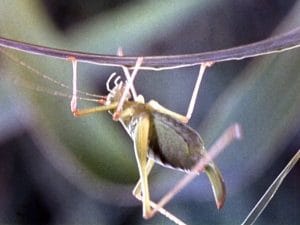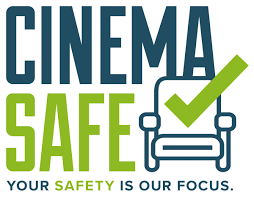Event
Science on Screen: Often Overlooked Lives of Insects and Why They Matter
Real Art Ways Science on Screen® season invites you to experience the unique combination of a feature film and a relevant talk from a notable local figure in science.
Film: Microcosmos
“Microcosmos is an amazing film that allows us to peer deeply into the insect world and marvel at creatures we casually condemn to squishing.” – Chicago Sun-Times
“Despite its G rating, Microcosmos deals frankly with the natural world’s realities of life, love and dinnertime. But for any child who enjoys the sight of a good-looking insect, it’s a must.” – NY Times
It may appear tiny to the human eye, but there is no denying that the insect kingdom — as captured by the filmmakers behind this documentary — is as dramatic, action-packed and beautiful as any other. Indeed, using a variety of film techniques and an inspired score, the moving image of a beetle pushing a ball of dung takes on the mythic quality of Sisyphus with his boulder. Meanwhile, endless caterpillar caravans suggest, amazingly, the rhythm of modern highways during rush hour.

Microcosmos (1996 France)
Directed by Claude Nuridsany, Marie Pérennou
Pre-Film Talk | 6:30 PM
Dr. Michael Singer will discuss the the complex, hidden world of insects and how humanity (and climate change) impact their delicate system.
Speaker: Dr. Michael Singer
Professor of Biology at Hall-Atwater Laboratories, Wesleyan University. His research is ultimately aimed at understanding the generation and maintenance of biodiversity. Toward this end, he studies the ecological and evolutionary processes driving trophic interactions among terrestrial plants, insect herbivores, and carnivores that eat insect herbivores (tri-trophic interactions). These organisms collectively account for over 50% of all 1.9 million described species on Earth.
He is interested in the significance of tri-trophic and other species interactions for generating biodiversity (e.g., Singer and Stireman 2005, Janson et al. 2008), ecological specialization (Singer 2008, Forister et al. 2012), and predicting the dynamics of ecological networks (Singer et al. 2012, 2014). This tri-trophic paradigm can also reveal new phenomena, such as the discovery of self-medication behavior in insect herbivores (Singer et al. 2009). His approach to testing and developing ecological and evolutionary theory uses information at a range of temporal and spatial scales as well as several levels of biological organization. Consequently, this work is often collaborative, involving the disciplines of community and landscape ecology, evolutionary ecology, chemical ecology, behavioral science, neurophysiology, biochemistry, systematics, conservation biology and natural history.
Science on Screen is an initiative of the COOLIDGE CORNER THEATRE, with major support from the ALFRED P. SLOAN FOUNDATION.
Updates to Our Cinema:
As you return to our physical space, your health and safety is our top priority. To learn about all the steps we have taken to prepare and our new procedures visit our Welcoming You Back page.
Real Art Ways Cinema is designated Cinema Safe. Learn more about Cinema Safe HERE


